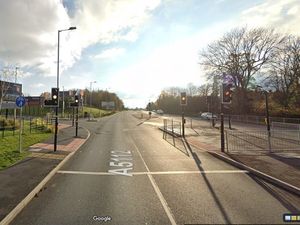Health sector hitting 'tipping point' as more than 100 bed-blockers on average every day in Trust hospitals
More than 100 patients fit to be discharged were taking up beds at Shrewsbury and Telford hospitals every day on average in October, figures show.
It comes after the average number of delayed discharges in England reached a new high last month, with 13,613 occupied beds on average each day– up from 11,590 per day in June.
By definition, 'bed blocking' occurs when a patient is fit to be discharged from hospital but is unable to return home because the social care they need is unavailable.
Not only is this a problem for the individuals who are stuck in hospital beds, but other patients as well, as it puts pressure on hospital resources.
NHS England figures show an average of 138 beds per day were occupied by people ready to be discharged from Shrewsbury and Telford Hospital NHS Trust in October – up from 129 the month before.
The Department for Health and Social Care recently announced that an additional £500 million would be spent on speeding up the release of patients from hospital.
But health think tank the King's Fund said this is not sufficient to deal with the problem.
David Maguire, senior analyst at the King's Fund, said the problem is "another chapter in an ongoing story" as the NHS continues to deal with post-coronavirus pandemic pressures and stretched budgets.
Mr Maguire said: "It’s not crept up on anyone and is a continuation of the pressures we have seen on social care over several years. The sector is hitting a tipping point."
He explained that social care services have been cut due to reduced funding for local authorities, meaning many patients are waiting in hospitals for adequate care packages to be installed, such as home adaptions, places in care homes or community health support.
The difficulty of recruiting and retaining staff in the adult social care sector was also raised as a key issue.
Nationally, just 40 per cent of hospital patients were discharged when they were ready in October.
In Shrewsbury and Telford Hospital, this fell to 39 per cent – down from 42 per cent in September.




